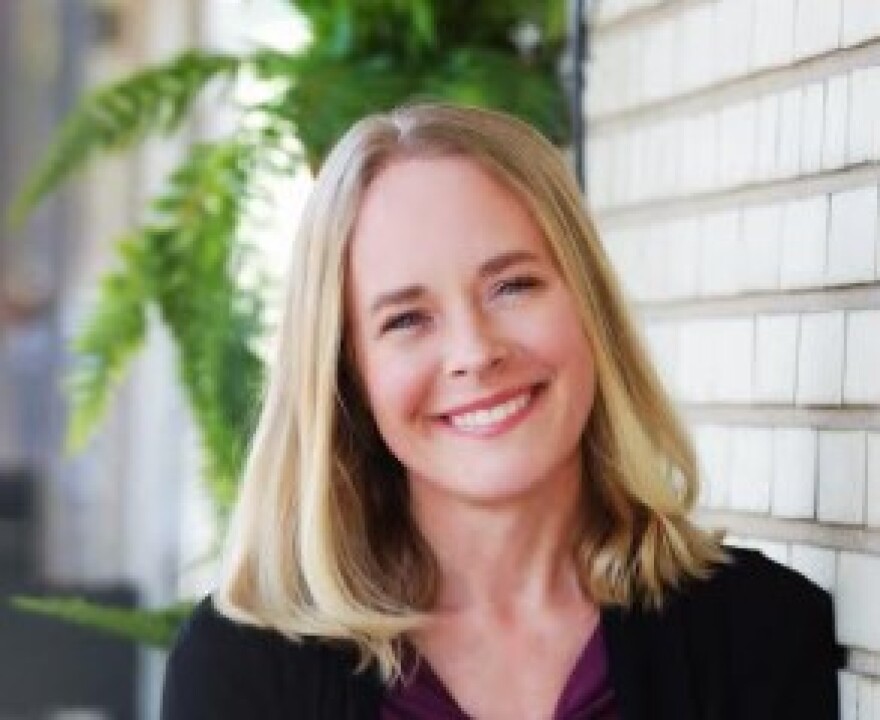More people are feeling stressed than at any other time in the last three decades, according to a recent Gallup poll.
And this stress leads to many mental health problems and poor wellbeing.
But the Midland Area Wellbeing Coalition is trying to change that.

Kathy Snyder, director of the coalition, said psychology has long been ignoring what components help people flourish in this world. She said the coalition is teaching people positive psychology, focusing on what behavior allows people to have a good life.
“We want people to feel love, we want people to be able to accomplish what they want to, we want people to be able to be happier,” said Snyder, a former Dow High School teacher and coach. “We want people to be able to be strong enough to handle (challenges) and to come out better on the other side.”
What is positive psychology?
Peggy Sczepanski, who is on the coalition’s leadership team, said she enjoys positive psychology because it is practical and useful.
“Traditional psychology really is the study of what's wrong,” she said. “And positive psychology is really the study of what's right. What is what's working, when someone is happy? What does that mean? What are the factors that are involved in their brain or in their physical health that create that ‘right scenario?’”
Both Snyder and Sczepanski said they define wellbeing through the PERMAH framework. Snyder said the factors that create that good scenario are:
- “P” stands for positive emotions, which help people navigate the world, including happiness, sadness, grief and other.
- “E” stands for engagement and how people are connected to their communities, studies, work and other areas.
- “R” is for the quality of relationships with others.
- “M” is for meaning, purpose and value in our lives.
- “A” stands for accomplishment and the ability to do what we want to do.
- “H” (which is silent) stands for health, eating, sleeping, moving and restoring effectively.
What education does the coalition offer?
Snyder said the coalition is educating the community through its free monthly online Power Half Hour sessions, at which they talk about different topics. She said some of those were about a sense of belonging, mattering and making decisions.
The coalition also offers wellbeing certificates, which involve full-day trainings, Snyder said. They are offered quarterly and the cost is $495, according to the Midland Area Wellbeing Coalition website.
The certificate training teaches people the PERMAH factors and tools for wellbeing and ties them to Midland’s community vision statement, which states that it aims to be an inclusive community that moves forward together, Snyder said.
How did the coalition start?
The Midland Area Wellbeing Coalition formed in June of 2020. But it first started as a taskforce in 2018.
Midland Mayor Maureen Donker was looking for ways to support the community in terms of wellbeing. One person she was working with on that was Snyder.
Forty community leaders initially obtained certification in applied positive psychology. Then, Snyder said, a class was offered to the general public and it drew 50 additional people.
“We do lots of work throughout our community to build resilience ... and to help people to struggle well through the ups and downs of life,” Snyder said.
Sczepanski said she has been working with the coalition since its beginning.
“For me, it’s about bringing into my community something that I’m very personally passionate about, making it available and accessible to all, even beyond our community,” she said. “It's about a sense of pride in my community.”
What are some valuable lessons the coalition has been teaching the community?
Snyder said her favorite thing to teach is character strengths and said that even self-indulgence or bragging can be a strength.
“When you live through your strengths is when you're the most authentic in the world,” Snyder said. “And it's helpful to really understand what those are so that you can engage better in the world around you.”
Snyder said often people come in groups from one workplace to attend the training. She also said the coalition focuses on the behavior at a workplace and how to stay healthy there specifically because it is a place that touches everyone.
“It's maybe the easiest point of entry in a way that we can potentially have the biggest impact,” Snyder said. “But ultimately, we're all individuals trying to make our way in the world and trying to do the best we can with what we have. And we just want to help people to have better toolboxes.”
Sczepanski said the coalition itself is constantly learning and growing. She said they have seen that the community has “hunger” and “appetite for this kind of information,” and they plan to continue to grow in future.
“We’ve got something unique for our community,” she said. “We will continue to grow and adjust as needed. But we don't pretend like what we have is perfect. We're always asking for feedback so that we can be even better in the future.”




